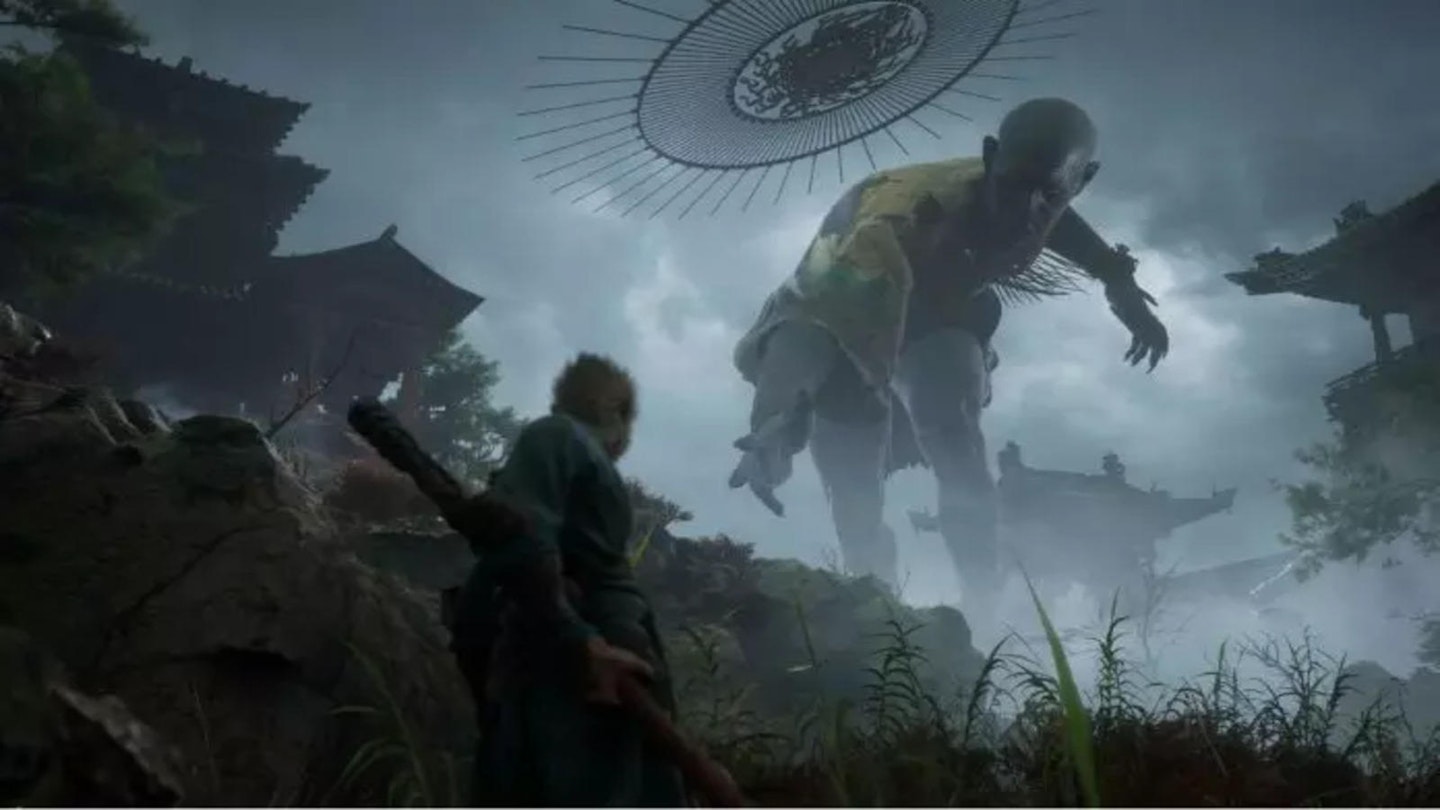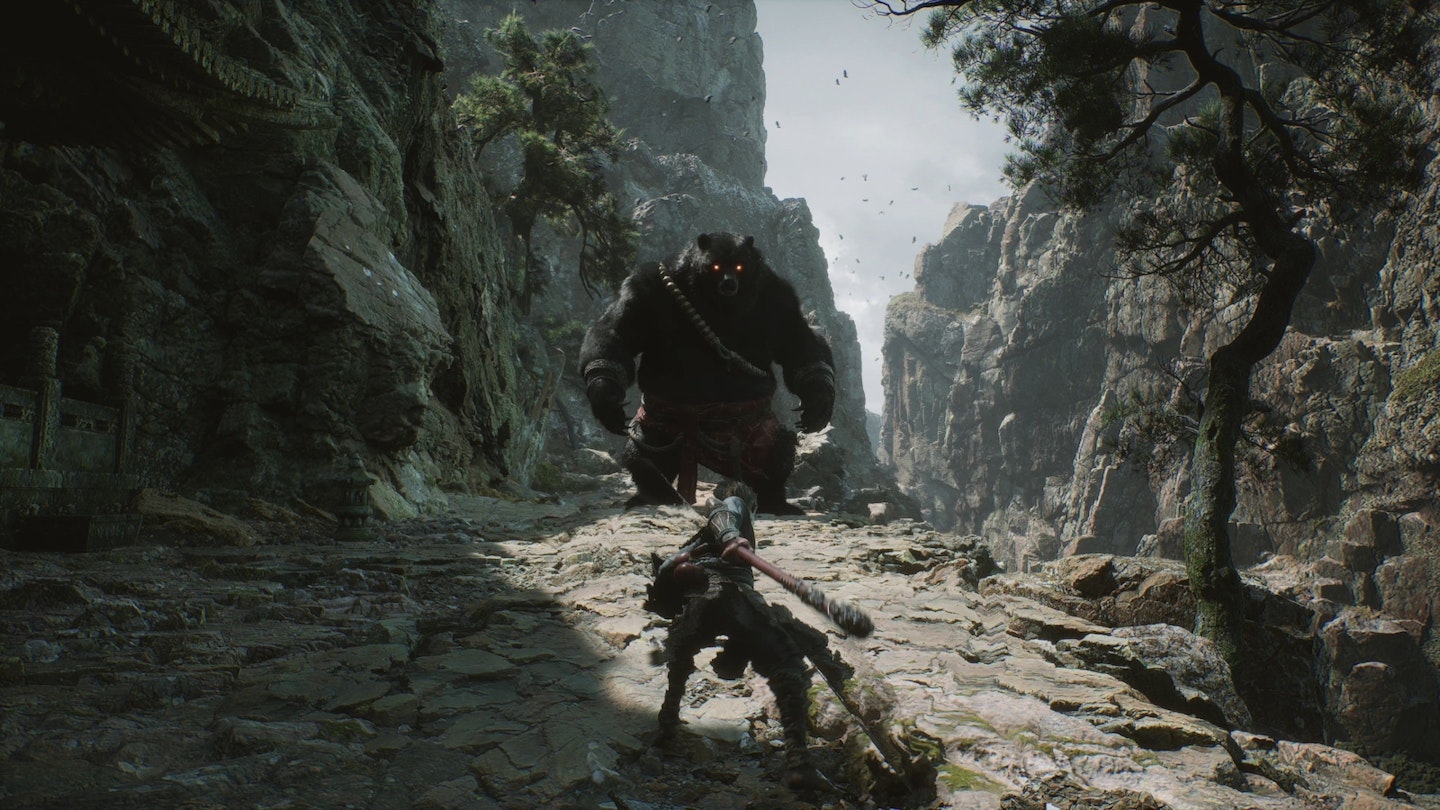Platforms: PC, PS5
Based on the Chinese literary classic Journey To The West, this action epic has been trailed as one of China's first "Triple A" game to make its own journey to the west. Quite how you'd gauge that status is up for debate (in terms of financial success, China's game market is already colossal, but mostly powered by mobile and MMO titles), but there's no debating the fact that Black Myth: Wukong is more than capable of standing shoulder to shoulder with big budget, ambitious titles from anywhere else in the world.

Wukong sees a young monkey warrior dubbed "The Destined One" following in the footsteps of the original Sun Wukong. More specifically, he's out to recover the six lost relics of his precursor, a quest wrapped in themes of predeterminism and cyclic fate. It's also one that takes him through some unspeakably beautiful locations along the way, from lush forests to shimmering deserts, and up against the truly impressive, intimidating bosses guarding them. If developer Game Science was out to make its mark on the visual front alone, it's succeeded.
Those spectacular bosses are the high-water marks of Wukong; thrilling encounters with mythological creatures of frequently daunting scale, each testing the Destined One's skills – chiefly based around his transforming staff, and a host of attacks and combat stances that make innovative use of the magical stick – to the utmost. There are a few encounters that feel imbalanced – seemingly random difficulty spikes or foes with endless health reserves that only draw out the encounters – but you'll likely be so taken by the eye candy of it all you won't resent having to try beating them a few times.

Yet this is no boss rush – at a glance, it's even tempting to think of Black Myth: Wukong as yet another Soulsborne title. Its structure is similar, built around labyrinthine areas to explore, peppered with yaoguai — low-ranking grunt enemies based on creatures in Chinese mythology – to dispatch, which respawn if you rest at save points, echoing the risk/reward factor of Dark Souls or Elden Ring.
There's a lot of hidden stuff through the game, including striking bonus encounters.
Mechanically though, Wukong feels a lot different. For one, the default attacks are mapped to your controller's face buttons rather than shoulder triggers, making each battle feel just that tiny bit faster; more a brawler in the mould of Devil May Cry than the timed precision of something like Bloodborne. Similarly, The Destined One is far faster and smoother than your typical Soulsborne protagonist – dodging is pivotal, especially perfectly timed ones that create a sliver of opportunity to mount a counterattack. The Destined One's ever-expanding library of magic spells are better woven into the entirety of his battle repertoire too, rapidly cast and feeling integral to his martial skills, rather than the domain of an entirely different character build. Throw in a skill tree where abilities are earned through levelling up, akin to more traditional action RPGs, and Wukong forges its own identity – albeit one where the sundry influences are easy to spot.
It's perhaps because of that piecemeal approach that the whole lacks cohesion in places, though. Combat is exciting but can get repetitive when dealing with the common enemies who rarely put up much of a fight against the increasingly god-like Destined One. Plus, for all the variety afforded by that skill tree and the hero's mix of physical and mystical abilities, a miserly amount of energy to unleash the latter can reduce even some of those impressive boss battles to button-mashing dodge-fests.
By far the biggest problem though is Wukong's occasional lack of direction. Sometimes this is in the storytelling – there's a tendency to take leaps that may make some sense if you have familiarity with the original Journey To The West but otherwise feel disjointed, leaving you with little idea where to go or why. Usually though, it's a lack of literal, spatial direction – those gorgeous environments lack any form of navigational aid, either in the form of actual maps or just environmental cues, such as landmarks. It's all too easy to get lost, wander down a half dozen dead ends, and give up out of frustration. This is clearly somewhat deliberate on Game Science's part – there's a lot of hidden stuff through the game, including some striking bonus encounters – but the implementation can still prove disorienting.
Still, it's a world you likely won't mind being lost in too much. Black Myth: Wukong is an absolute feast for the eyes, the visuals serving as dazzling wrapping on a satisfyingly action-packed outing that really knows how to deliver in terms of sheer spectacle.
